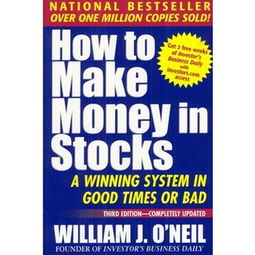How to Make Money on Land You Own
Land ownership can be a valuable asset, but it’s important to know how to leverage it effectively to generate income. Whether you have a small plot of land in the city or a larger piece of property in the countryside, there are numerous ways to make money from it. Here’s a detailed guide on how you can do just that.
1. Renting Out Your Land

One of the most straightforward ways to make money from land is by renting it out. This can be done in various ways, depending on the type of land you own and the local demand.
-
Residential Renting: If your land is in a desirable location, consider subdividing it and renting out individual plots to builders or developers. This can be a lucrative option, especially in urban areas where land is scarce.
-
Commercial Renting: If your land is situated near commercial areas, you can rent it out to businesses looking for a new location. This could include retail spaces, office buildings, or even warehouses.
-
Agricultural Renting: If your land is suitable for farming, consider renting it out to local farmers or agricultural businesses. This can be a sustainable way to generate income, as well as contribute to the local economy.
2. Selling Land

Another way to make money from land is by selling it. However, this approach requires thorough research and understanding of the real estate market.
-
Market Research: Before selling your land, it’s crucial to research the local real estate market to determine the best time to sell and the optimal asking price.
-
Improvements: Investing in improvements, such as clearing the land, installing utilities, or building a small structure, can increase the value of your property and attract potential buyers.
-
Marketing: Utilize various marketing strategies, such as online listings, real estate agents, and social media, to reach potential buyers.
3. Land Development

Land development involves transforming your property into a more valuable asset by adding infrastructure or improving its usability. This can be a long-term investment, but it can yield significant returns.
-
Infrastructure: Consider adding utilities, such as water, electricity, and roads, to make your land more attractive to developers or businesses.
-
Residential Development: If your land is suitable for residential development, you can subdivide it and sell individual plots to builders or developers.
-
Commercial Development: If your land is suitable for commercial development, consider building a shopping center, office complex, or other commercial properties.
4. Land Leasing
Land leasing is a flexible option that allows you to generate income without the long-term commitment of selling or developing your property.
-
Long-Term Leases: Consider leasing your land to businesses or individuals for a long-term period, such as 10-20 years. This can provide a steady income stream.
-
Short-Term Leases: If you prefer a more flexible option, consider short-term leases, such as monthly or yearly, for events, festivals, or temporary use.
5. Land Conservation
In some cases, it may be more beneficial to conserve your land rather than develop it. This can be a viable option if your land has ecological, historical, or cultural significance.
-
Conservation Easements: Consider placing a conservation easement on your land, which restricts its development while allowing you to retain ownership. This can provide tax benefits and protect the land for future generations.
-
Donations: If your land has significant conservation value, you may consider donating it to a conservation organization or government entity.
6. Land Investment Trusts
Land investment trusts (LITs) are a way to pool resources from multiple investors to purchase and manage land assets. This can be an attractive option if you don’t have the capital to invest in land on your own.
-
Investment Opportunities: LITs can provide access to a diverse range of land investments, including agricultural, residential, and commercial properties.
-
Professional Management: LIT